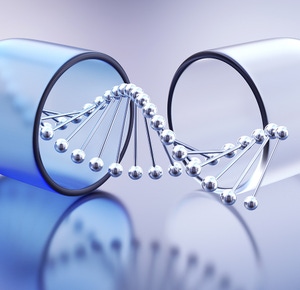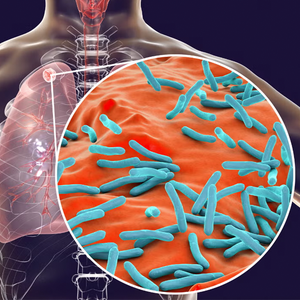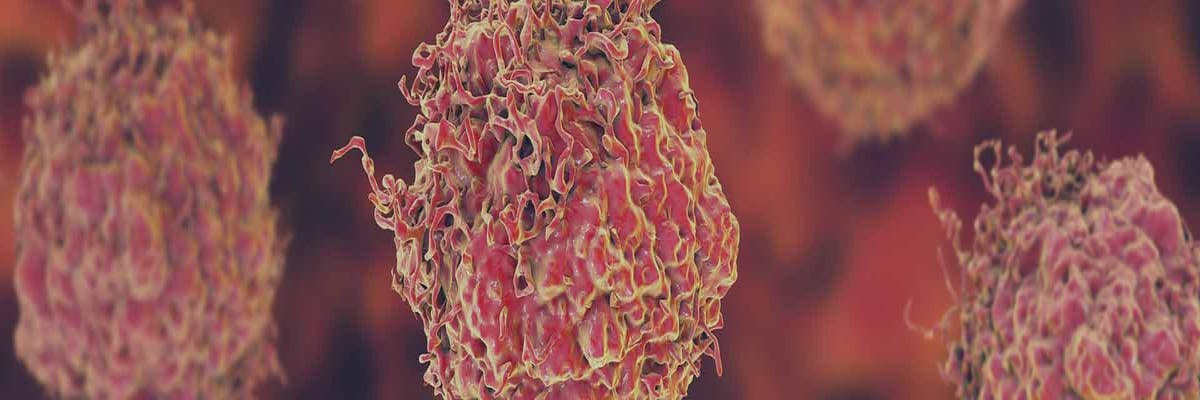- Who we serve
- アカデミア
- Pharma / Biotech
Revvity Impact Report
Learn how we are increasing our commitment to drive a positive impact on the world.

- Clinical Laboratories
Revvity Impact Report
Learn how we are increasing our commitment to drive a positive impact on the world.

- Healthcare Professionals
Revvity Impact Report
Learn how we are increasing our commitment to drive a positive impact on the world.

- Contract Research Organizations
Revvity Impact Report
Learn how we are increasing our commitment to drive a positive impact on the world.

Revvity Impact Report
Learn how we are increasing our commitment to drive a positive impact on the world.

- Products
- 研究・開発
- ゲノム解析
- Nucleic Acid Isolation
- NGSワークフロー
- Microplate Readers
- マイクロ流体核酸分析
- CRISPR Technologies
- RNA Interference
- トランスフェクション試薬および補助試薬
- Oligonucleotide Custom Synthesis
- cDNAs and ORF Clones
- Single-Cell Sequencing
- Labeled Nucleotides
- qPCR
- ライブラリー調製キット
- Magnetic Beads
- Viral Vector Products
Revvity Impact Report
Learn how we are increasing our commitment to drive a positive impact on the world.

- タンパク質解析
- Binding Assays
- イムノアッセイ
- マイクロ流体によるタンパク質特性評価
- Microplate Readers
- マイクロプレート
- Recombinant Proteins
- ウェスタンブロッティング
- Sample Dissociation
- M-PVA Magnetic Beads
Revvity Impact Report
Learn how we are increasing our commitment to drive a positive impact on the world.

- 細胞分析
- Cell Isolation
- Cell Lines & Stem Cells
- Cell Counting and Image Cytometry
- セルヘルスと細胞生存率
- Cellular Imaging & Analysis
- Immunoassays
- In Vivo Imaging
- Microplates
Revvity Impact Report
Learn how we are increasing our commitment to drive a positive impact on the world.

- 研究ソリューション
- Biomarker Discovery
- 細胞・遺伝子治療
- GMP Workflows
- バイオロジクス
- 低分子創薬
- 疾患研究
- ターゲットクラス
- 医薬品開発
- プレシジョン・メディシン・リサーチ
- 機能ゲノミクススクリーニングソリューション
- アッセイ開発ワークフロー
- Physiological Model Solutions
- Biobanking Workflows
- Agrigenomics Workflows
Revvity Impact Report
Learn how we are increasing our commitment to drive a positive impact on the world.

Revvity Impact Report
Learn how we are increasing our commitment to drive a positive impact on the world.

- ゲノム解析
- 臨床・診断
- リプロダクティブ・ヘルス
- 出生前検査
- 新生児スクリーニング
- Newborn Sequencing Research
- Pregnancy-Relevant Infections
- Endocrine Reproductive
- cell-free DNA解析
- Neonatal Research
- Preimplantation Genetic Testing
- PlGF Testing Research
- 分子細胞遺伝学
Revvity Impact Report
Learn how we are increasing our commitment to drive a positive impact on the world.

- 感染症
- Tuberculosis Management
- EUROIMMUN Solutions
- IDS Solutions
- Nucleic Acid Isolation for Pathogen Detection
- Cytomegalovirus
- SARS-COV-2 Testing Solutions
- Bacterial & Viral Nucleic Acid Isolation
- Metagenomics
Revvity Impact Report
Learn how we are increasing our commitment to drive a positive impact on the world.

- がん
- ASR Flow Cytometry Antibodies
- HPV Testing
- ctDNA Workflows
- miRNA-seq Analysis
- Exosome/cfRNA Analysis
- Targeted Sequencing
- Mimix Reference Standards
- Functional Testing
Revvity Impact Report
Learn how we are increasing our commitment to drive a positive impact on the world.

- 自己免疫(powered by Euroimmun)
Revvity Impact Report
Learn how we are increasing our commitment to drive a positive impact on the world.

- 内分泌学
Revvity Impact Report
Learn how we are increasing our commitment to drive a positive impact on the world.

- アレルギー
Revvity Impact Report
Learn how we are increasing our commitment to drive a positive impact on the world.

- 神経変性
Revvity Impact Report
Learn how we are increasing our commitment to drive a positive impact on the world.

- ラピッド検査
Revvity Impact Report
Learn how we are increasing our commitment to drive a positive impact on the world.

Revvity Impact Report
Learn how we are increasing our commitment to drive a positive impact on the world.

- リプロダクティブ・ヘルス
- Reagents
Revvity Impact Report
Learn how we are increasing our commitment to drive a positive impact on the world.

- プラットフォームと自動化
- 核酸分離
- chemagic Applications
- chemagic IVD Instruments
- chemagic IVD Kits
- chemagic Instruments
- chemagic Kits
- M-PVA Magnetic Beads
Revvity Impact Report
Learn how we are increasing our commitment to drive a positive impact on the world.

- 自動液体分注
Revvity Impact Report
Learn how we are increasing our commitment to drive a positive impact on the world.

- 統合ラボオートメーション
Revvity Impact Report
Learn how we are increasing our commitment to drive a positive impact on the world.

- マイクロ流体分析
Revvity Impact Report
Learn how we are increasing our commitment to drive a positive impact on the world.

- 検出システムソリューション
Revvity Impact Report
Learn how we are increasing our commitment to drive a positive impact on the world.

- イメージング
Revvity Impact Report
Learn how we are increasing our commitment to drive a positive impact on the world.

- サンプルのホモジナイゼーション
Revvity Impact Report
Learn how we are increasing our commitment to drive a positive impact on the world.

- IVDプラットフォーム&オートメーション
- IVD Nucleic Acid Isolation
- IVD Automated Liquid Handling
- IVD Radiometric Detectors
- EUROIMMUN Instruments
- IDS Instruments
- Clinical Applications
Revvity Impact Report
Learn how we are increasing our commitment to drive a positive impact on the world.

- 消耗品&アクセサリー
- Cassettes
- Cell Harvesters
- In Vivo Imaging Accessories
- ハイコンテントイメージングアクセサリー
- Microplates
- Radioactive Spill Cleaners
- Scintillation Cocktails
- Transfer Membranes
- Charcoal Traps
Revvity Impact Report
Learn how we are increasing our commitment to drive a positive impact on the world.

- Instrument Service & Maintenance
Revvity Impact Report
Learn how we are increasing our commitment to drive a positive impact on the world.

Revvity Impact Report
Learn how we are increasing our commitment to drive a positive impact on the world.

- 核酸分離
- Consumables & Accessories
Revvity Impact Report
Learn how we are increasing our commitment to drive a positive impact on the world.

- Signals ソフトウエア
- All Products
Revvity Impact Report
Learn how we are increasing our commitment to drive a positive impact on the world.

- All Solutions
Revvity Impact Report
Learn how we are increasing our commitment to drive a positive impact on the world.

Revvity Impact Report
Learn how we are increasing our commitment to drive a positive impact on the world.

- All Products
- Revvity Omics Services
Revvity Impact Report
Learn how we are increasing our commitment to drive a positive impact on the world.

Revvity Impact Report
Learn how we are increasing our commitment to drive a positive impact on the world.

- 研究・開発
- Services
- Preclinical Services
- Antibody Drug Conjugate Services
Preclinical services
Work with our experienced scientific team and leverage our advanced technologies to help accelerate the preclinical drug discovery process.

- Complex Cell Model Screening Services
Preclinical services
Work with our experienced scientific team and leverage our advanced technologies to help accelerate the preclinical drug discovery process.

- Base Editing Platform
- Pin-point base editing platform cell line engineering services
- Pin-point base editing platform pooled tiled screening services
Preclinical services
Work with our experienced scientific team and leverage our advanced technologies to help accelerate the preclinical drug discovery process.

- Immune Cell Screening
Preclinical services
Work with our experienced scientific team and leverage our advanced technologies to help accelerate the preclinical drug discovery process.

- Functional Genomic Screening Services
Preclinical services
Work with our experienced scientific team and leverage our advanced technologies to help accelerate the preclinical drug discovery process.

- Cell Panel Screening
Preclinical services
Work with our experienced scientific team and leverage our advanced technologies to help accelerate the preclinical drug discovery process.

- Cell Line Engineering
Preclinical services
Work with our experienced scientific team and leverage our advanced technologies to help accelerate the preclinical drug discovery process.

- Viral Vector Engineering and Manufacture
Preclinical services
Work with our experienced scientific team and leverage our advanced technologies to help accelerate the preclinical drug discovery process.

Preclinical services
Work with our experienced scientific team and leverage our advanced technologies to help accelerate the preclinical drug discovery process.

- Antibody Drug Conjugate Services
- Revvity Omics Services
- Revvity Omics Clinical Services
- Cytogenomics
- Global Laboratory Network
- Metabolic Testing
- Newborn Screening Services
- Prenatal Screening Services
- Rare Disease Testing
- Specialized and Customized Assays
- Sponsored Testing Programs
T-SPOT.TB testing services.
Revvity's Oxford Diagnostic Laboratories is a large referral laboratory for tuberculosis testing services based on our T-SPOT technology.

- Revvity Omics Pharma Services
T-SPOT.TB testing services.
Revvity's Oxford Diagnostic Laboratories is a large referral laboratory for tuberculosis testing services based on our T-SPOT technology.

T-SPOT.TB testing services.
Revvity's Oxford Diagnostic Laboratories is a large referral laboratory for tuberculosis testing services based on our T-SPOT technology.

- Revvity Omics Clinical Services
- 臨床サービス
- Revvity Omics Clinical Services
T-SPOT.TB testing services.
Revvity's Oxford Diagnostic Laboratories is a large referral laboratory for tuberculosis testing services based on our T-SPOT technology.

- Revvity Omics Pharma Services
T-SPOT.TB testing services.
Revvity's Oxford Diagnostic Laboratories is a large referral laboratory for tuberculosis testing services based on our T-SPOT technology.

- Cellular and Humoral Immunoassays
T-SPOT.TB testing services.
Revvity's Oxford Diagnostic Laboratories is a large referral laboratory for tuberculosis testing services based on our T-SPOT technology.

- Tuberculosis Testing Services
T-SPOT.TB testing services.
Revvity's Oxford Diagnostic Laboratories is a large referral laboratory for tuberculosis testing services based on our T-SPOT technology.

T-SPOT.TB testing services.
Revvity's Oxford Diagnostic Laboratories is a large referral laboratory for tuberculosis testing services based on our T-SPOT technology.

- Revvity Omics Clinical Services
- Customization Services
- Assays and Reagents
T-SPOT.TB testing services.
Revvity's Oxford Diagnostic Laboratories is a large referral laboratory for tuberculosis testing services based on our T-SPOT technology.

- Microplate Services
T-SPOT.TB testing services.
Revvity's Oxford Diagnostic Laboratories is a large referral laboratory for tuberculosis testing services based on our T-SPOT technology.

- Custom Conjugation & Labeling
T-SPOT.TB testing services.
Revvity's Oxford Diagnostic Laboratories is a large referral laboratory for tuberculosis testing services based on our T-SPOT technology.

- Radiosynthesis and Labeling
T-SPOT.TB testing services.
Revvity's Oxford Diagnostic Laboratories is a large referral laboratory for tuberculosis testing services based on our T-SPOT technology.

T-SPOT.TB testing services.
Revvity's Oxford Diagnostic Laboratories is a large referral laboratory for tuberculosis testing services based on our T-SPOT technology.

- Assays and Reagents
- ライセンシング
- Viral Vector Engineering and Manufacture
- AAV Services
T-SPOT.TB testing services.
Revvity's Oxford Diagnostic Laboratories is a large referral laboratory for tuberculosis testing services based on our T-SPOT technology.

- Lentivirus Services
T-SPOT.TB testing services.
Revvity's Oxford Diagnostic Laboratories is a large referral laboratory for tuberculosis testing services based on our T-SPOT technology.

T-SPOT.TB testing services.
Revvity's Oxford Diagnostic Laboratories is a large referral laboratory for tuberculosis testing services based on our T-SPOT technology.

- AAV Services
- Instrument Service & Maintenance
- AV Services
T-SPOT.TB testing services.
Revvity's Oxford Diagnostic Laboratories is a large referral laboratory for tuberculosis testing services based on our T-SPOT technology.

- Equipment Service Plans
T-SPOT.TB testing services.
Revvity's Oxford Diagnostic Laboratories is a large referral laboratory for tuberculosis testing services based on our T-SPOT technology.

- On-demand Equipment Service
T-SPOT.TB testing services.
Revvity's Oxford Diagnostic Laboratories is a large referral laboratory for tuberculosis testing services based on our T-SPOT technology.

T-SPOT.TB testing services.
Revvity's Oxford Diagnostic Laboratories is a large referral laboratory for tuberculosis testing services based on our T-SPOT technology.

- AV Services
- Customer Training
- Expert-led Training
T-SPOT.TB testing services.
Revvity's Oxford Diagnostic Laboratories is a large referral laboratory for tuberculosis testing services based on our T-SPOT technology.

- Online Training
T-SPOT.TB testing services.
Revvity's Oxford Diagnostic Laboratories is a large referral laboratory for tuberculosis testing services based on our T-SPOT technology.

T-SPOT.TB testing services.
Revvity's Oxford Diagnostic Laboratories is a large referral laboratory for tuberculosis testing services based on our T-SPOT technology.

- Expert-led Training
- OEM ソリューション
T-SPOT.TB testing services.
Revvity's Oxford Diagnostic Laboratories is a large referral laboratory for tuberculosis testing services based on our T-SPOT technology.

T-SPOT.TB testing services.
Revvity's Oxford Diagnostic Laboratories is a large referral laboratory for tuberculosis testing services based on our T-SPOT technology.

- Preclinical Services
- 会社
- Resources
- Product Support
- Application Support Knowledge base (ASK)
Tech documents, at your fingertips.
Quickly find and download manuals, safety documents, certificates of analysis and more.

- SDS Search
Tech documents, at your fingertips.
Quickly find and download manuals, safety documents, certificates of analysis and more.

- COA/TDS Search
Tech documents, at your fingertips.
Quickly find and download manuals, safety documents, certificates of analysis and more.

- Manual/IFU Search
Tech documents, at your fingertips.
Quickly find and download manuals, safety documents, certificates of analysis and more.

- SpectraViewer
Tech documents, at your fingertips.
Quickly find and download manuals, safety documents, certificates of analysis and more.

- RAD Calculator
Tech documents, at your fingertips.
Quickly find and download manuals, safety documents, certificates of analysis and more.

Tech documents, at your fingertips.
Quickly find and download manuals, safety documents, certificates of analysis and more.

- Application Support Knowledge base (ASK)
- Resource Center
Tech documents, at your fingertips.
Quickly find and download manuals, safety documents, certificates of analysis and more.

- Blog
Tech documents, at your fingertips.
Quickly find and download manuals, safety documents, certificates of analysis and more.

- Events
Tech documents, at your fingertips.
Quickly find and download manuals, safety documents, certificates of analysis and more.

- Customer Training
- Expert-led Training
Tech documents, at your fingertips.
Quickly find and download manuals, safety documents, certificates of analysis and more.

- Online Training
Tech documents, at your fingertips.
Quickly find and download manuals, safety documents, certificates of analysis and more.

Tech documents, at your fingertips.
Quickly find and download manuals, safety documents, certificates of analysis and more.

- Expert-led Training
- Help Center
- Order Support
Tech documents, at your fingertips.
Quickly find and download manuals, safety documents, certificates of analysis and more.

- Contact Us
Tech documents, at your fingertips.
Quickly find and download manuals, safety documents, certificates of analysis and more.

- Technical Support
Tech documents, at your fingertips.
Quickly find and download manuals, safety documents, certificates of analysis and more.

- Instruments Support & Service
Tech documents, at your fingertips.
Quickly find and download manuals, safety documents, certificates of analysis and more.

- SDS Request
Tech documents, at your fingertips.
Quickly find and download manuals, safety documents, certificates of analysis and more.

- COA/TDS Request
Tech documents, at your fingertips.
Quickly find and download manuals, safety documents, certificates of analysis and more.

- Manual/IFU Request
Tech documents, at your fingertips.
Quickly find and download manuals, safety documents, certificates of analysis and more.

- Training Request
Tech documents, at your fingertips.
Quickly find and download manuals, safety documents, certificates of analysis and more.

- Cell Line Terms & Conditions
Tech documents, at your fingertips.
Quickly find and download manuals, safety documents, certificates of analysis and more.

Tech documents, at your fingertips.
Quickly find and download manuals, safety documents, certificates of analysis and more.

- Order Support
- よくあるご質問
Tech documents, at your fingertips.
Quickly find and download manuals, safety documents, certificates of analysis and more.

- Software Downloads
Tech documents, at your fingertips.
Quickly find and download manuals, safety documents, certificates of analysis and more.

- Knowledge Base
- Application support knowledge base (ASK)
Tech documents, at your fingertips.
Quickly find and download manuals, safety documents, certificates of analysis and more.

- Newborn screening disorders
Tech documents, at your fingertips.
Quickly find and download manuals, safety documents, certificates of analysis and more.

- Sample homogenization applications and protocols
Tech documents, at your fingertips.
Quickly find and download manuals, safety documents, certificates of analysis and more.

- TB testing services
Tech documents, at your fingertips.
Quickly find and download manuals, safety documents, certificates of analysis and more.

Tech documents, at your fingertips.
Quickly find and download manuals, safety documents, certificates of analysis and more.

- Application support knowledge base (ASK)
Tech documents, at your fingertips.
Quickly find and download manuals, safety documents, certificates of analysis and more.

- Product Support
- Brands
Welcome to Revvity: renowned brands and boundless innovation.
Hearing the word "can't" is our call to action!
We help scientists, researchers, and clinicians overcome the world's greatest health obstacles.
View our story
Featured brand: BioLegend
Learn about our world-class antibodies for a diverse set of research areas including immunology, neuroscience, cancer, stem cells and cell biology.
Visit BioLegend.com


Revvity Sites Globally
Select your location.
*e-commerce not available for this region.


Establishing an automated high-throughput assay that supports the growth of prostate cancer organoids
The standard of care for individuals diagnosed with advanced and metastatic prostate cancer is androgen deprivation therapy (ADT), sometimes in combination with other androgen receptor (AR)-directed treatments or taxane-based chemotherapy. However, 10–20% of cases progress after androgen deprivation to a more aggressive disease stage known as castration-resistant prostate cancer (CRPC). Unfortunately, various mechanisms of resistance emerge in CRPC, including enrichment of genomic alterations associated with poor prognosis, aberrations that maintain the activation of the AR pathway, and phenotypic transformation into AR-null and neuroendocrine phenotypes. See how researchers demonstrated the ability to automate preclinical testing with prostate cancer organoids with diverse phenotypes.
For research use only. Not for use in diagnostic procedures.
To view the full content please answer a few questions
Download Resource
Establishing an automated high-throughput assay that supports the growth of prostate cancer organoids




























